#Natalia Hawkins
Text

‘Carmine, wait!’ Talia called, trying desperately to keep his back in view. But the crowd seemed determined to hide him. People surged back to fill the gaps he left in his wake. Part of Talia wanted to bare her fangs, to show them who she really was, but that just would have made things that bit more difficult.
Talia was practically spat from the back of the crowd, and spotted Carmine immediately. With only the most cursory of glances behind her, Talia raced towards him, using some of her power.
She stopped before him, and Car stumbled to a stop. There was a look of hurt in his eyes that broke her heart.
‘It’s all lies, Car,’ she told him, hearing the crack in her voice. ‘Please.’
‘They were drained, Talia,’ he whispered. ‘Len…’ He visibly swallowed. ‘Lennox showed me the pictures.’
‘We’re being framed,’ she told him desperately. ‘An easy scapegoat.’
Car wetted his lips, and for once she thought there was fear in his eyes. Talia took a step back.
‘I just need time,’ he said softly, the hint of a question in his voice.
‘Of course,’ Talia said thickly. ‘You know where I am.’ She offered him a shaky smile before dashing away, feeling the tears burning in her throat.
#ocappreciation#Misfits and Misinformation#Drabble#Made By Me#Wednesday OCs#Natalia Hawkins#Carmine Bishop#Talia Hawkins#Car Bishop
2 notes
·
View notes
Text
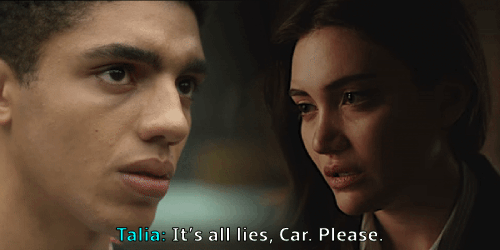
Random Dialogue Prompt: Misfits and Misinformation (Wednesday)
#ocappreciation#Misfits and Misinformation#Dialogue Edits#Made By Me#Wednesday OCs#Natalia Hawkins#Carmine Bishop#Talia Hawkins#Car Bishop
3 notes
·
View notes
Text

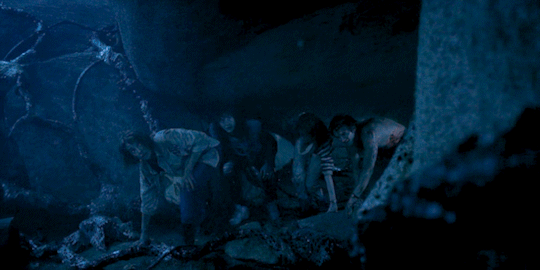




The Fruity Four in The Massacre at Hawkins Lab. Stranger Things 4x7
#stranger things#the fruity four#steve harrington#nancy wheeler#robin buckley#eddie munson#joe keery#jospeh quinn#maya hawke#natalia dyer#i love them so much#they needed more scenes together#Stranger things 4X07#stranger things gif#The Massacre at Hawkins Lab
170 notes
·
View notes
Text
Over a week ago, the Season 4 Episode 7 script was released by Deadline. It's fully legit, even retweeted by writers. I have not seen enough people talking about it so here are some highlights.
Firstly demobats being referred to as fuckers in the official is so funny to me. I was not expecting Eddie in the official script to be quote "shish-kabobing the fucker" in reference to him killing a demobat.


As well as this Erica is referred to as a "fucking ninja!" which is so iconic. I'm glad the writers know how cool she is too.

Now I am not a St4ncy fan, no offense if you do ship it, but the quote "there are bigger problems than sexual tension." is hilarious. The writers and I seem to have the same attitude towards their relationship; uh oh.

Other beautiful quotes include Nancy landing on the concrete pool being described so eloquently.

The following quotes are less funny but are interesting to me so I thought I'd share.
For example, Nancy holding her hands out in case Robin fell was improvised! Natalia proving herself as the number 1 Ronance shipper yet again. Also improvised: Maya Hawke refering to Robin as the guinea pig.

Also the Eleven/Vecna fight was a reference to the circle test! Did not work out that parallel to be honest.

Finally, the, in my opinion, very funny line saying Dustin's tone was his issue was improvised by Joseph Quinn! Good for him, it really elevated the scene.
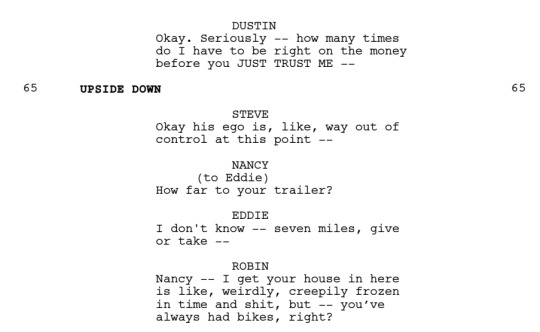
Hopefully this was amusing and informative and not just some random Tumblr user yelling into the void (: no Byler in this post obviously as the Cali gang weren't in the episode.
#stranger things#stranger things four#massacre at hawkins lab#st 04x07#erica sinclair#steve harrington#nancy wheeler#ronance#natalia dyer#robin buckley#maya hawke#eleven#el hopper#dustin henderson#eddie munson#joseph quinn#eddie and dustin#st4
61 notes
·
View notes
Text
Help, why is this so funny…
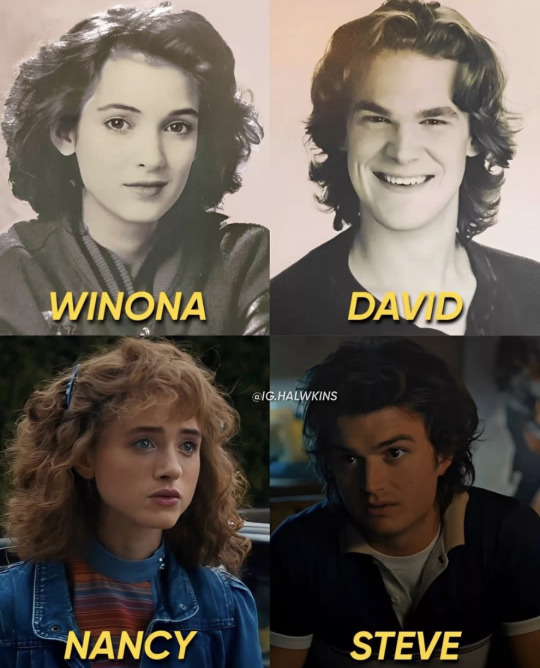
#David Harbour#Duffer Brothers#Hawkins Indiana#Jim Hopper#Joe Kerry#Joyce Byers#Nancy Wheeler#Natalia Dyer#Netflix Originial Series#Netflix#Steve Harrington#Stranger Things 4#Stranger Things memes#Winona Ryder
36 notes
·
View notes
Text
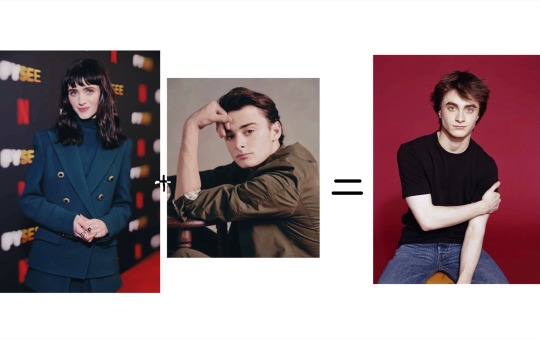
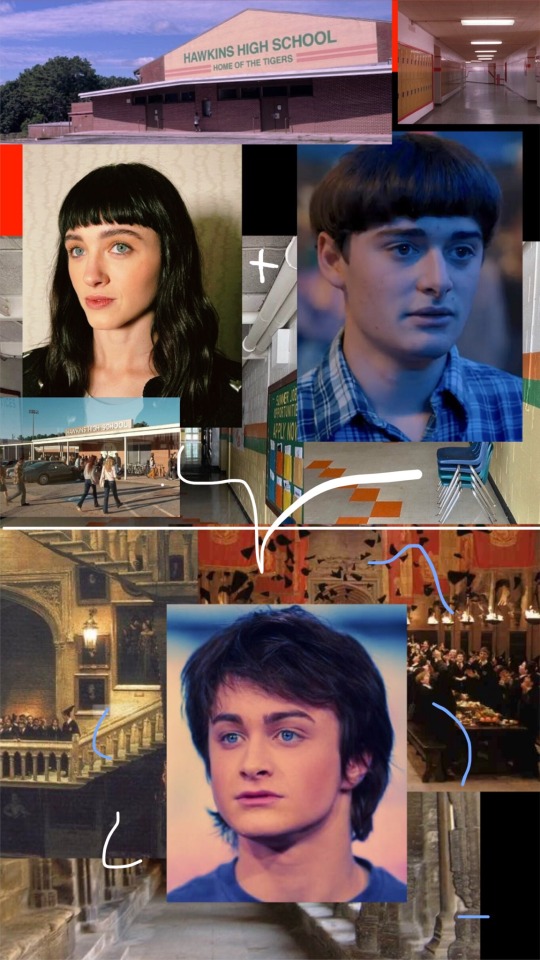
!!!!!.!.!,!.!
made these w vsco x & basic apple markup feature
#collage#stranger things#harry potter#daniel radcliffe#natalia dyer#noah schnapp#nancy wheeler#will byers#weird#vsco#hawkins#hogwarts#crossover#*photos sourced from pinterest*#genetics
10 notes
·
View notes
Text

Now showing on DuranDuranTulsa's Television 📺 Showcase...Stranger Things: The Massacre At Hawkins Lab (2022) on Netflix #tv #television #horror #scifi #strangerthings #massacreathawkinslab #davidharbour #finnwolfhard #noahschnapp #calebmclaughlin #sadiesink #gatenmatarazzo #joekeery #winonaryder #MillieBobbyBrown #PaulReiser #robertenglund #nataliadyer #charlieheaton #mayahawke #matthewmodine #josephquinn #priahferguson #carabuono #gabriellapizzolo #hendrixyancey #2020s #Netflix #durandurantulsa #durandurantulsastelevisionshowcase
#tv#duran duran tulsa's television showcase#television#horror#scifi#stranger things#massacre at hawkins lab#david harbour#finn wolfhard#noah schnapp#caleb mclaughlin#sadie sink#gaten matarazzo#millie bobby brown#winona ryder#paul reiser#Robert Englund#joe keery#natalia dyer#charlie heaton#maya hawke#Matthew Modine#Joseph Quinn#priah ferguson#cara buono#gabriella pizzolo#hendrix yancey#2020s#Netflix#duran duran tulsa
0 notes
Text
guys, i have good news for once. i've found proof of intelligent life out here in these wastelands:
my favorite excerpts:
Will, Jonathan, and Joyce Formed a Special Trio
If Eleven is the main character in Stranger Things, the Byers family is the conduit through which she flickers. Will’s disappearance in the first season spurred the Hawkins community to rush to his aid.
The tight-knit camaraderie between Will, Jonathan, and Joyce juxtaposes the stereotypical family composed of kids and teenagers. Parents and children are supposed to fight and bicker in television and other media, often to build the main conflict of the story, but the Byers family already underwent that trauma offscreen.
Lonnie Byers (Ross Partridge) makes a brief cameo in the first season, flexing his standoffish demeanor and abusive nature. It’s clear that the Byers patriarch doesn’t possess much empathy for his ex-wife or his sons. Jonathan valiantly steps into the father, husband, and big brother role, amalgamating into a combination of responsibilities that no other character on the show could dream of emulating.
Jonathan Binds the Byers Family Together
Jonathan’s multifaceted arc in the first two seasons made him one of the series’ most easily dissectable characters. Stranger Things often differentiates itself from other shows by keeping the antagonists separate from the main characters. There are no Walter White or Tony Soprano-style antiheroes in which fans must compromise one part of their moral compass to appreciate the character.
One might think this makes the series boring, but it’s the opposite. Jonathan was proof that a nearly perfect brother and son can still be fascinating to watch. After Will was found in season 1’s climax, he was taken over by the Mind Flayer in season 2. Jonathan again stood by Will’s side as his little brother felt outcasted by friends and society at large. Schnapp and Heaton’s chemistry often leads to tender, humorous exchanges like this one in which the boys remind the audience that being weird can be a human superpower in its own right.
These moments became few and far between in seasons 3 and 4. Will and Jonathan were relegated to minor supporting characters as the aforementioned new additions took center stage. Will at least gets to tag along with Mike, Dustin, Lucas, and the other younger friends. Jonathan often only appears in a few small scenes with his girlfriend Nancy (Natalia Dyer), and the writers even flirted with pushing Nancy back into Steve’s arms in the most recent season. Jonathan spent the majority of season 4 high on marijuana and frolicking around in a faux buddy-comedy routine with the one-off character Argyle (Eduardo Franco).
The decision to waste Heaton’s work from the first two seasons with a 180-degree personality change made no sense. Jonathan suddenly seemed careless, distant, and uninspired, but not in a dense way that could be unlocked by further character development. Little-to-no time was spent on him. While some fans might concur it is a necessary evil to take screen time away from older characters when expanding the world of Hawkins, it certainly transforms Stranger Things from a show about family into a show just about monsters and romances.
Jonathan’s Enhanced Role in Season 5?
Many theories point to Will being one of the critical pieces to defeating Vecna (Jamie Campbell Bower) in the fifth and final season. His connection to the Upside Down and the evils underneath the surface should open up opportunities for Jonathan to lend his ears and counseling once again. Jonathan grows on an individual level when he aids others. When locked out of his family’s life, it stunts his ability to shine as a listener and an empathizer.
Jonathan’s best scene from season 4 again features a tear-jerking moment with Will. On the cusp of coming out of the closet, Will needs Jonathan more than ever before, and his brother responds supremely to the task at hand. The poignant conversation validates that the Duffers haven’t completely forgotten how to flesh out the Byers family. When the world gets too enormous for the characters and the audience, Jonathan serves as a connector to the most human elements of the series’ thematic thesis.
He may not be as funny as Steve or as neurotic as Robin, but Jonathan symbolizes the good in all of us. In a show shrouded in darkness, Jonathan’s presence will be instrumental to forming a satisfying, optimistic conclusion in Hawkins, Indiana.
#st#stranger things#jonathan byers#if everyone and the duffers would listen to what me and my fellow jonathan warriors have been preaching and praying and saying#reading jonathan appreciation is like getting injected directly in the heart with adrenaline it makes me feel like a sports fan whose team#just won and now must destroy a city over it . or whatever
176 notes
·
View notes
Text
Also, Finn, Gaten, and Noah are back on set after a short break and are filming this week. I’m not sure if the full party is filming as Caleb for some reason is much harder to track for these people.
Charlie and Natalia are still on break, Maya is doing press for her new movie, and Millie is on her honeymoon. They’re filming at the Creel House, playground, the church, and Downtown Hawkins (inside the studio).
#I feel like this is particularly interesting just because of the creel stuff#all of them might be involved in those scenes#stranger things#st5 production#byler#cause yall will want to know
112 notes
·
View notes
Photo
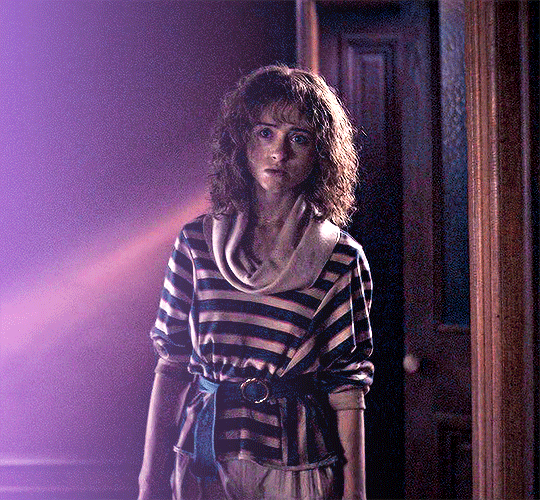
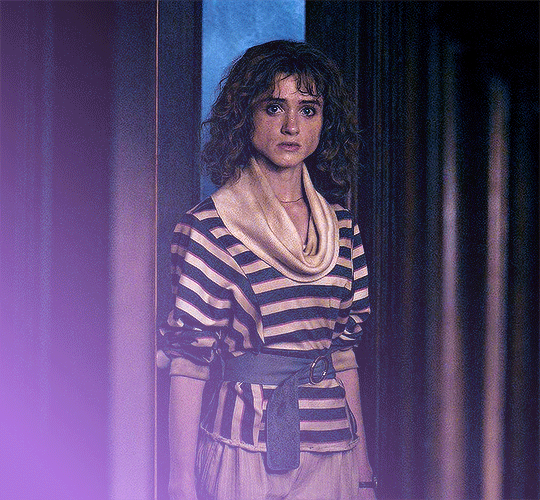
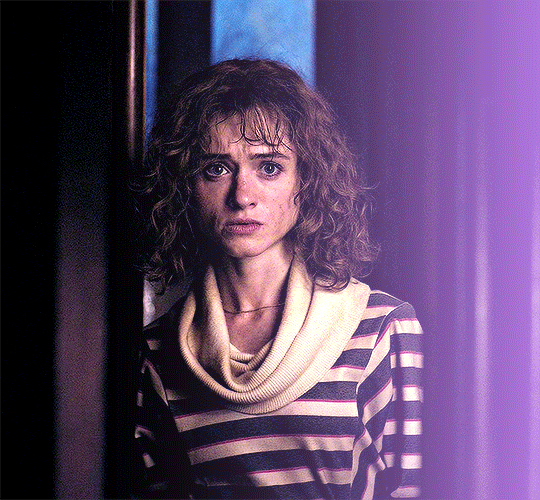
Natalia Dyer as Nancy Wheeler in Stranger Things 4x07: “The Murder at Hawkins Lab”
#stranger things#strangerthingsedit#nancy wheeler#nancywheeleredit#natalia dyer#nataliadyeredit#userangelic#tuserjackie#usermaguire#userallisyn#userspacey#perfectopposite#*#by jessica
686 notes
·
View notes
Text
Stranger Things The First Shadow Review
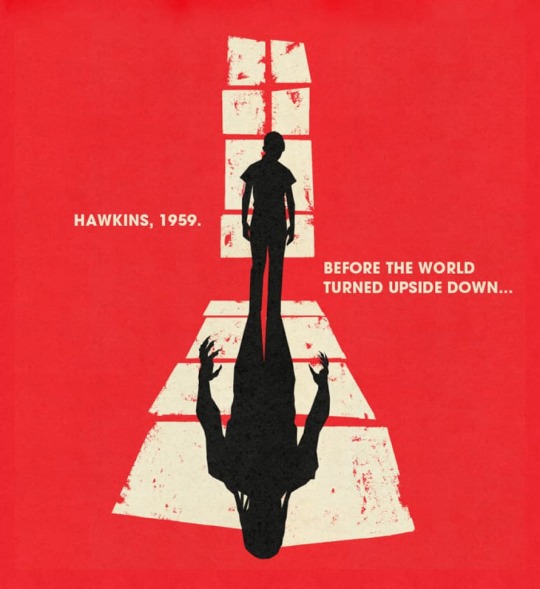
Synopsis: Following a horrific incident from their previous life in Nevada, the Creel family relocates to Hawkins, Indiana in an attempt to make a fresh start and instill a sense of normalcy in their son, Henry Creel. However, Henry is anything but normal, and harbors a dark secret of his own that scares both himself and his family. When a series of gruesome animal killings takes place, attracting the attention of a group of teenage outcasts and a Doctor with his own agenda, Henry realizes his secret is about to be exposed, and is forced into a reckoning that will change the course of his life, and of Hawkins, forever.........
Observations:
FINALLY!!!!
I've been waiting for MONTHS to see The First Shadow. As far back as January, we got tickets and made plans to travel to London specifically for this. Last Thursday (June 20, 2024), we were able to view it on-stage.
Was it worth it? Short answer: YES.
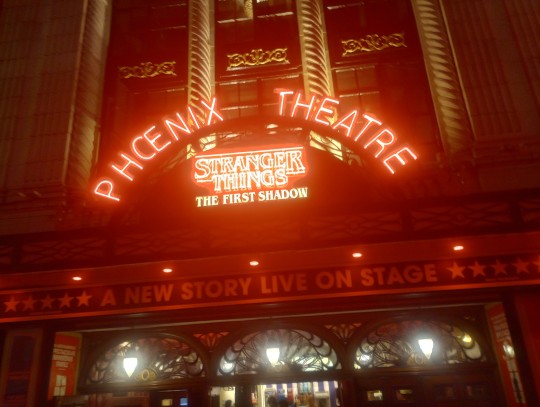
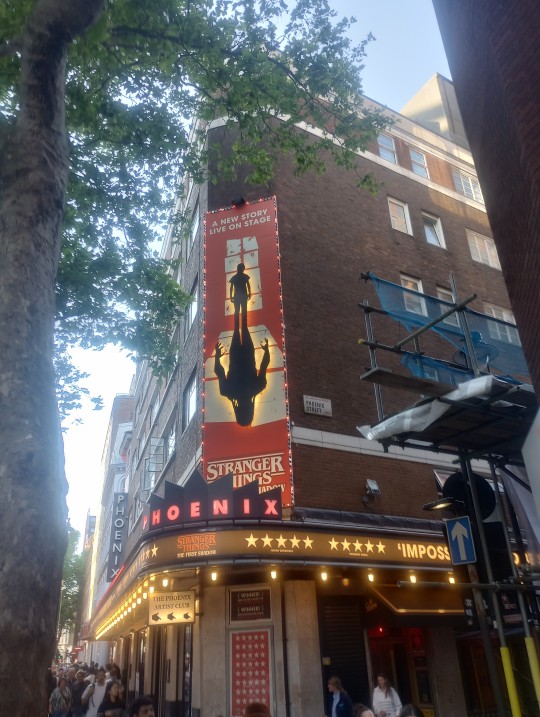
This is going to be divided into several parts. The first bit will detail my experience at the play, and the remaining parts will contain SPOILER HEAVY analysis of the story, the characters, and plot revelations tied directly to the mythology of the show. There's a lot to speculate on where the Duffer Brothers will take the final season from here.
Part 1: My Experience
In terms of production value, this was top-notch. I loved the set designs, from Hawkins High School, to the classic 50s Diner the characters hang out at, to the gothic Creel House, to the cold white rooms of Hawkins Lab, to the hellish landscape of Upside Down, and so on. The 50s aesthetic works well, and there were multiple shots that conveyed the sense I was watching an episode from the show.
The special effects were spectacular. Huge shout-out to the way they choreographed the mutilation of both animals and humans. It actually looked like bones being snapped and limbs twisted around. There's even a disturbing scene where Hopper and Bob are digging up the carcass of a butchered cat, and the prop they used for it looked realistic (combined with dirt and blood for nauseating effect). The lighting also helped elevate the creepiness of it all.
The music was also great. They had a nice selection of 50s songs, but they also brought back familiar themes from the show. One of my favorite musical cues was the use of Philip Glass's "Window of Appearances" which is heard when Vecna's origins are revealed in "The Massacre at Hawkins Lab" (Season 4, Episode 7). They also use it in the climax of this play:
youtube
The actors brought their A-game, but the two performances that really stood out for me were Isabella Pappas as Joyce and Louis McCartney as Henry Creel. Pappas does a stellar job combining Joyce's world-weary "I'm sick of everyone's bullshit" attitude with the fierceness that makes Joyce stand out as a character. It reminded me a little of Natalia Dyer's performance as Nancy Wheeler, especially with the "take charge" attitude that both of them have.
As for McCartney, he was the show-stealer. I didn't go into this play expecting to feel any sympathy for Vecna, but the emotional depth McCartney brings to his performance elevates the character to a 3-dimensional complex tragic villain, which makes his eventual fall to evil all the more heartbreaking.
The audience I was with was fully immersed. Most of the jokes got a laugh, there were a few screams when jump-scares occurred, and there was a standing ovation at the end when the cast came out to give a bow. Even during intermission, everyone was chatting happily about the play, and I heard nothing but compliments.
My only regret is, due to a scheduling conflict that day, we ended up missing the first 5 minutes, and they wouldn't let us in the theater until the title cards came up. We did see parts of the beginning on a TV screen in the lobby (and one of the patrons was gracious enough to fill us in on what happened), but I wish I'd been in the theater for the beginning. My advice is GET THERE EARLY if you plan to see it. The theater fills quickly, and they may not let you in at certain points.
The only minor nitpick I have about the quality of the play is there were a few moments I had a hard time understanding what certain characters were saying. This was mostly in the scenes with Henry/One/Vecna when he was either screaming or alternating to his demonic voice. I was usually able to figure out what was going on, but I wish the dialogue had been clearer.
Overall, this was a fun experience, and I even brought back memorabilia from it:

Part 2: Characters/Story (MAJOR SPOILERS AHEAD!)
It's pretty much advertised in the synopsis, but the play takes place in 1959 when Joyce, Hopper, and Bob are in high school during the time the Creel family moves into Hawkins. The story is largely centered on Henry Creel's villain origins as he becomes more unhinged due to the power he possesses. This leads to a series of pet killings in Hawkins that catches the attention of Hopper, who ropes in both Joyce and Bob to investigate and find the culprit. All the while, Joyce is struggling to put on a play at Hawkins High School (i.e. The Dark of the Moon), which coincidentally happens to have Henry/One/Vecna as the main star! :)
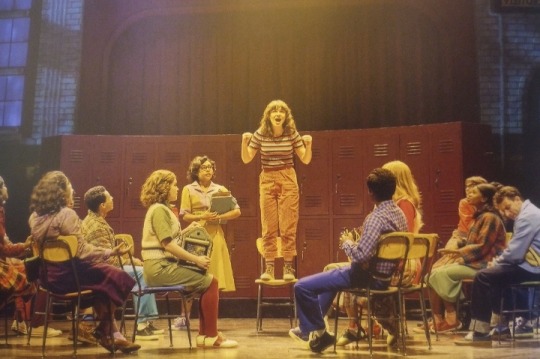
These three arcs sound like they shouldn't connect at all, but to the Duffer Brothers credit, they manage to thread them in a way that's believable and engaging. Joyce's exasperated attempts to get The Dark of the Moon off the ground provide some light comedy to what is essentially a grim story, and it was a nice way for the audience to see all the adult characters from the show (i.e. Ted Wheeler, Karen Wheeler, Al Munson, Lonnie Byers, Sue Sinclair, Charles Sinclair, etc) as they were during their teen years.
The investigation of Hopper, Joyce, and Bob into the pet killings hearkens back to the old-fashioned dynamic the Party had in the first season when they were looking into Will's disappearance.
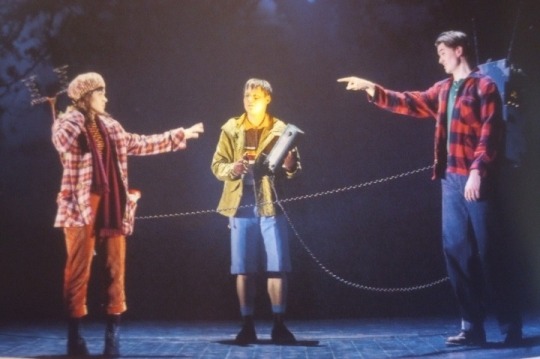
As for Henry/One/Vecna, his arc was well executed and horrifying on so many levels:
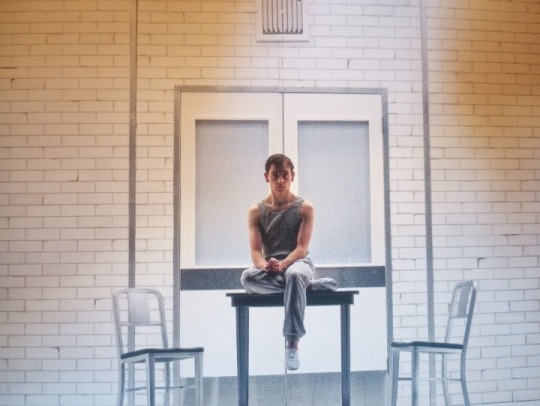
The way a young Henry Creel was portrayed in this play was oddly endearing. I mentioned earlier that McCartney brings a lot of emotional depth to the character, and by that, I mean he portrays teenage Henry as awkward, shy, creepy, funny, and even sympathetic at times. He's a kid who doesn't feel comfortable in his own skin, who has a hard time interacting with other people, and has powers that frighten him with the added side-effect of NOT knowing how to control them yet. Victor Creel mentioned to Nancy and Robin in S4 that Henry was a "sensitive child" and it turns out that was meant literally: Lights go on or off (or even explode) whenever Henry's mood fluctuates (making Henry constantly jumpy), he can unknowingly tune into the radio with his powers and mistakes it for voices in his head, he can read the thoughts/moods of other people, he can create illusions (similar to Kali/Eight), and whenever he tries experimenting with his powers, it ends in disaster. In short, he's someone who's terrified of his own shadow, and almost everything in his environment sets him off. At the same time though, there are some relatable qualities to him, such as his love for comics like Captain Midnight (which he eagerly shares with Patty), and there is an internal struggle he deals with for most of the play to genuinely be a good person in spite of the demons (both literal and figurative) that threaten to overwhelm him. He reminds me of Will Byers in some ways, and I am dead sure that parallel between these two characters was intentional on the Duffer Brothers part.
Contrary to what's implied on the show, it turns out Henry had his powers long before he moved to Hawkins. Previously, he lived in Rachel, Nevada until an incident between him and another boy resulted in said boy ending up in a wheelchair. It's ambiguous whether Henry deliberately attacked the boy or if it was an accident (it could have been either one), but it was enough to force his family to move. His parents (particularly his mother) are insistent on pretending everything is normal and that Henry will eventually get better, all the while putting more of an emotional strain on Henry as he tries (and fails) to conform.
We get a little more insight into Henry's parents, and it's not pretty: Victor Creel was already established on the show as a war veteran with severe trauma and PTSD over killing innocents during a raid, and the play depicts him the same way, with the added effect of being so wrapped up with his own issues that he fails to see his own son spiraling. The sad thing is there are scenes indicating he does love Henry (and also defends Henry's relationship with Patty, referring to it as "puppy love") but he isn't able to convey that in a way which makes Henry feel safe.
As for Virginia Creel, I don't know if this was intentional in the narration, but I found her unlikable. Putting aside the unsettling 50s Stepford Wife persona she projected, her treatment of Henry bordered on emotional abuse. She likely didn't intend that, but everything, from her attempts to keep Henry isolated from the one relationship that brings him any happiness, to constantly treating him like a time bomb waiting to go off, to pretending everything is okay when it isn't.........all of this causes whatever mother/son relationship she has with Henry to deteriorate. There's even one nasty scene where she smacks him, though she quickly regrets it when Henry lashes out in anger and forces his mom to witness a vision of herself being covered in spiders when she was locked in the closet by her abusive parents as a child. In some ways, it reminded me a little of the Norma/Norman Bates relationship from the Psycho series (minus the incest subtext) in how unhealthy it is. It was deeply uncomfortable seeing her attempt to force Henry to be something he wasn't just so she could maintain the image that she and her family were perfect. And when she realized she couldn't do that, she finally tried to wash her hands of Henry the moment Dr. Brenner showed up and offered to take Henry into his care ("Lock him up and throw away the key" to paraphrase one of her comments). I get that this is set in the 50s where there's plenty of values dissonance with how parents raised their kids at that time, and there is some context behind why she was scared of her son and his behavior (because there were times Henry wasn't acting okay), but she still handled this situation poorly and contributed to Henry internalizing his trauma and insecurities until they exploded out of him in the worst possible way. It was bad enough that Henry was dealing with something he didn't understand, but she needlessly added on to those problems.
Alice (Henry's sister) is also in the play, but she only appears in a few brief scenes, and sadly doesn't get a lot of characterization beyond being the "cheerful child" in the family. It's implied she knows that something is wrong with her brother, but doesn't look closely at it. Interestingly, they portray her like she's Henry's younger sister, even though the show established that she's supposed to be older (There's a news article in S4 that claims Henry was 12 and Alice was 15 when the Creel murders happened). Other than that, there isn't really much to say about Alice.
The three main characters (Joyce, Hopper, Bob) have their familiar quirks that will follow them into adulthood: Bob is nerdy, smart, good with technology (which comes in handy in their investigation) and the host of a radio show. Hopper is the disgruntled son of the Chief of Police who's trying to make something of his life. Joyce is high-strung, in a dead-end relationship with Lonnie, and trying to find a balance between optimism and pessimism. In a way, I'm reminded of the Steve/Jonathan/Nancy dynamic we briefly got in the S1 finale, with Joyce having similarities to Nancy, Bob to Jonathan, and Hopper to Steve. This was clearly set up as a love triangle between the 3 of them, and I have to question if the Duffer Brothers deliberately did this to foreshadow what could end up happening between Steve/Jonathan/Nancy in S5. In any case, Joyce, Hopper, and Bob investigate the animal killings when they start to happen, and while they come close to figuring out who it is, they ultimately miss the mark and pin the crime on the wrong person (Poor Victor Creel). Sadly, by that time, it's too late, and both Virginia and Alice Creel are dead.
There is a new character introduced named Patty Newby who plays an important role. She's the adopted sister of Bob and was revealed to have been taken in (or stolen as a child, as Henry later claims) by Bob's father, Principal Newby. Despite his misanthropy and awkward nature, Henry takes an interest in Patty, and the two of them develop genuine affection for one another. When Patty auditions for Joyce's play, Henry helps her with her lines (which leads to both of them getting cast as the main leads), and later feels comfortable enough to share his secret powers with her, including giving her a glamorous vision of starring and singing in a Las Vegas show. Against all odds, I actually found the relationship between Henry and Patty to be cute. Not only did it humanize Henry, but the way it was presented made sense: Both of them are outcasts with deep insecurities that they're trying to work through. Patty feels like an outsider in her family and at school due to her race (which isn't helped by people like Dustin's father making disgustingly bigoted comment towards her during class) and her complicated relationship with her adopted dad, who treats her coldly. Since Henry also feels like an outcast in his family, he's able to empathize with her, and both of them try to encourage the best in one another. In a moment of genuine kindness, Henry helps Patty locate her biological mother (who coincidentally is also a singer), and Patty returns the favor by trying to encourage Henry into believing that he is a good person and that there are positives with his powers.
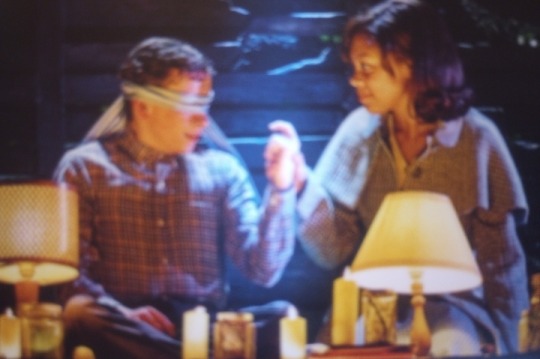
I know some fans will complain about how Patty was never mentioned on the show even though she's supposed to be adopted siblings with Bob, but I'm not bothered by that. Nothing about her existence contradicts anything on the show, and it was nice to see a redeemable side to Henry that proves he wasn't a complete monster to begin with. The only thing that's harsher in hindsight is that, because Patty and Bob were close growing up, and because of Henry's affection for Patty, it makes what he does to Bob in S2 (i.e. siccing the demodogs on Bob) a lot more vile.
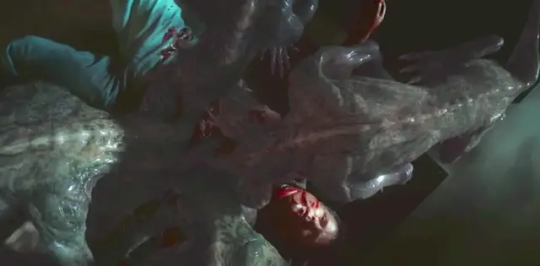
Finally, there's Dr. Brenner himself: If there was ever any doubt that he saw Henry and the other special kids like El as a means to an end, this play erases that. He is at his absolute worst here. Manipulative. Cruel. Determined to push Henry over the edge. Egging Henry into murdering a convicted prisoner, even though Henry fights back against doing that, all so Brenner can test him. Hurling verbal abuse at Henry, and then playing up the "Loving Papa" persona in the same way he would do with El years later. It really says something that he is the most loathsome character in the play, and that he doesn't see Henry as a person so much as a tool.
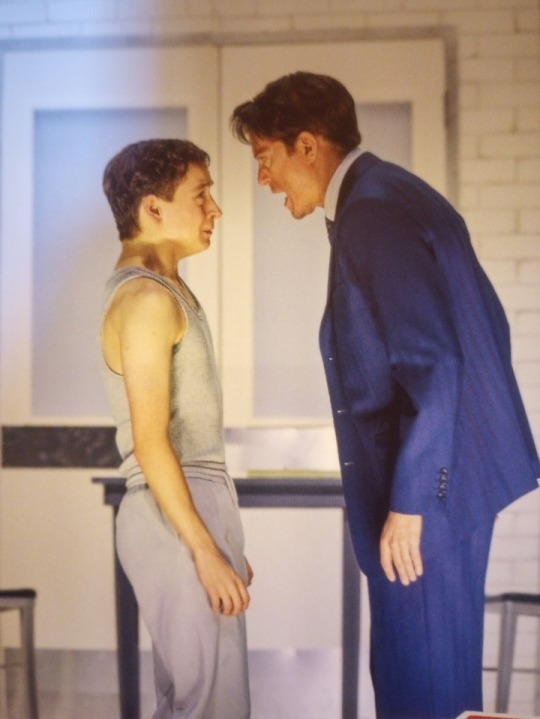
This was already a given on the show, but I still remember fans who kept making apologies for Brenner's behavior in S4 while insisting he really did care about Henry and the other kids in spite of his abuse of them. 🙄 I always maintained those were garbage apologies, and this play only reinforces that. Even though Henry is ultimately responsible for the choices he makes (regardless of the negative influences in his life), there is an argument to be had that Brenner bears responsibility for destroying whatever remaining goodness Henry had left in him until Henry became the cold, calculating monster with a plethora of rage and a deep hatred for humanity to accompany it.
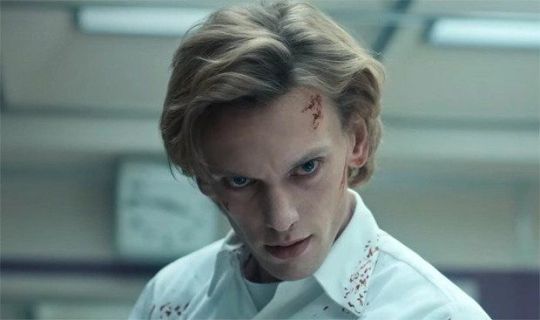
Part 3: Revelations
For a while now, I've held theories that the powers El, Henry, and the other special kids have had were connected to the Upside Down. These theories were even talked about in my reviews for Stranger Things Six, Stranger Things The Other Side, and Stranger Things Suspicious Minds. I've also speculated on the idea that the Mind Flayer might be its own entity, and that Henry/One/Vecna didn't create it so much as gave it a form when he found those black particles in the Upside Down decades later.
This play confirms those theories: Not only is the Upside Down connected to their powers, but it's revealed in this play that the Mind Flayer acted as a malevolent corrupter to a young Henry, which would later lead to him becoming the monstrous Vecna.
At the beginning of the play, there's a flashback to 1943 where the U.S. military was experimenting with a new technology on the USS Eldridge to create a force field to hide the ship from the Germans during WWII. Interestingly, this bit was based on a real life experiment called "Project Rainbow," and the pamphlet I bought gives more details about it:
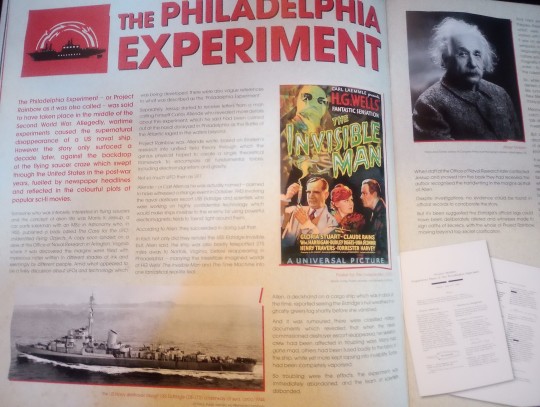
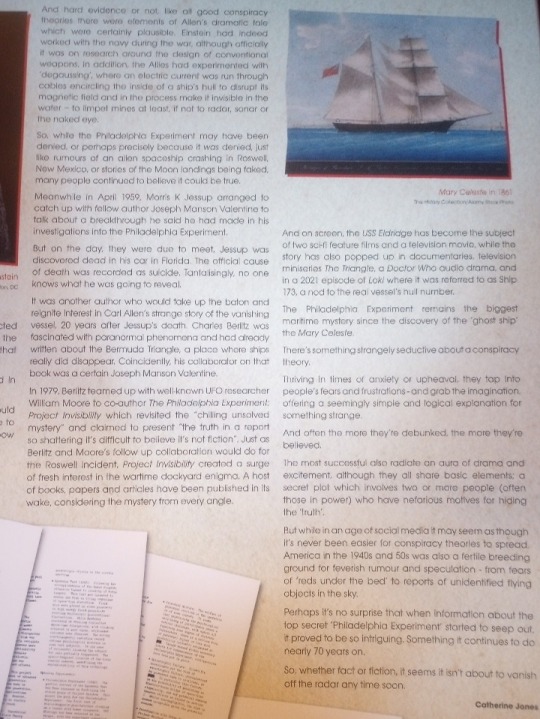
In the play, the technology caused the ship to end up in the Upside Down, where most of the crew was slaughtered by Demogorgons. The sole survivor turned out to be Dr. Brenner's father, who came back to the real world with altered blood in his system. He ends up dying, but passed on his secret to his son, kick-starting Brenner's scientific pursuits for the military. In other words: Brenner was aware of the Upside Down long before El banished Vecna to it in 1979.
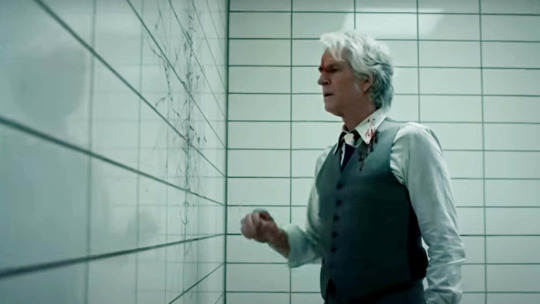
Fast-forward a few years later. Henry is in Rachel, Nevada, playing in one of the caves with a spyglass when he encounters a rogue scientist who worked under Brenner in Nevada. Brenner had spent years attempting to replicate the experiment on the USS Eldridge in Nevada, and one of his scientists had stolen key technology and fled to the caves. When Henry discovers the technology, it transports both him and the scientist to the Upside Down. The scientist is killed, but Henry gets exposed to a malevolent entity (The Mind Flayer) before he is transported back to this world. Just like with Brenner's father, his blood is altered, and so is his personality. Brenner would later be able to track Henry down due to the spyglass he dropped in the caves after his exposure. In spite of escaping the Upside Down, Henry was now connected to the Mind Flayer, who spends the majority of the play acting as a malicious influence driving Henry to kill, and chipping away at his personality bit-by-bit:
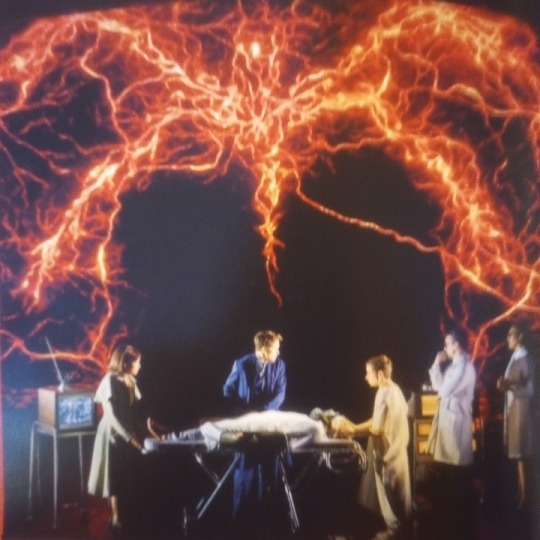
It's not really a spoiler to say Henry is behind the pet killings in Hawkins (since he was shown killing animals on the show), but the difference here is the play makes it ambiguous how much control Henry has over his powers and actions. The Mind Flayer certainly uses Henry as a vessel, but there are moments Henry was shown to be capable of resisting it, indicating there was some manner of agency on Henry's part. In some moments, he chose to drive off the monster, whereas in others (like the deaths of Virginia and Alice Creel), he allowed the monster to work through him.
Like I said, these are theories I've held for a while now, so it felt gratifying to see them validated. While Vecna's monologue to El in 1979 implies that he was always a sociopath with powers who acted on his own accord with no outside influence, it's important to note that Vecna in that scene is an unreliable narrator twisting past events to paint himself a certain way to El. Part of it may be that he doesn't want to admit he was a victim of the Mind Flayer and that he made his own choices (Which is true: He DID have choices and the ability to reject the Mind Flayer, which we see in one scene when the Mind Flayer attacks Patty's father, and Henry intervenes on Patty's behalf to save him). Part of it may be that he's been under the hold of the Mind Flayer for so many years that, by the time El meets him, he's come to believe he and The Mind Flayer are one in the same.
Either way, regardless of what happened, there were a lot of elements stacked against Henry that makes me pity him: The Mind Flayer's influence, Brenner exploiting Henry's powers for his own selfish scientific desires instead of genuinely helping him, his parents trying to force Henry to be normal and shove down his issues instead of taking the time to deal with them..............the only positive thing Henry had going for him was his relationship with Patty. Her determination to see the good in Henry and his powers, and her belief that Henry could rise above the darkness gave some brief salvation for him. Unfortunately, that wasn't enough to save him, and the darkness won in the end.
There is a slight change I was okay with: In the show, Henry mentions that he fell into a coma after killing his mother and sister. While that is true to some extent, he actually wakes up a few hours later and flees the house to go find Patty at the school. He encounters Joyce in the basement (after the power gets knocked out) and, in a scene that's both creepy and sad, he acknowledges that Joyce is a good person and warns her that the world will punish her for it while taking away everything she holds dear. There's a dark irony to his words considering he would later be responsible for the disappearance of her son, the death of Bob, and most of the problems Joyce would later deal with on the show.
Following his encounter with Joyce, Henry finds Patty on an elevated stage platform, and begs her to run away with him. She is basically his last hope at this point, and even that is taken away when Brenner manages to track him and Patty down. There's a whole "Good Angel/Bad Devil" exchange that occurs as Patty (the Angel) implores Henry to fight against The Mind Flayer while Brenner (the Devil) snarls that Henry is already a monster and he might as well accept it. All of this cultivates in Henry using his powers on Patty, having finally surrendered to the Mind Flayer's influence, and throwing her from the rafters, almost killing her. Henry passes out after this, and Brenner takes him back to Hawkins Lab, where he will spend the next 20 years as Brenner's prisoner. Patty manages to survive the fall and, thanks to information Henry gave her earlier, she's able to locate her biological mother in Las Vegas and reunite with her. The last act of redemption Henry would ever have.
These revelations help give context to the mythology of the show. They explain what motivated Dr. Brenner for so many years. They explain the Mind Flayer was well aware of this world, and that Brenner was aware of the Upside Down long before El opened the gate in 1983. They explain Henry already had troubling aspects to begin with, and that his encounter with the Upside Down and the Mind Flayer only amplified those problems. They explain how and why Henry became disillusioned, nihilistic, and angry over the next 2 decades, and how he would project that onto his enemies once he became Vecna. They explain why Henry/One/Vecna takes an interest in certain characters on the show, from El (whose upbringing and struggles are similar to what Henry went through as a child) to Will (who shares similar traits with him as an outcast and a nerd) to even Billy (with both of them projecting their rage onto the world), and went as far as to target them. And, most importantly, it explains how Henry and other special kids like Kali and El got their powers.
This does raise interesting questions that I hope S5 will explore more of:
Since Will was kidnapped and taken to the Upside Down in S1, does this mean his blood type has been altered as well due to his exposure to the Mind Flayer? Does he now possess some kind of power similar to El that we haven't seen yet but might be unveiled in the last season?
And what about the Upside Down freezing in time in 1983? Considering the Upside Down remained consistent as a hellish environment (even after El banished Vecna to it in 1979), this gives the impression that what happened there was an anomaly. I still maintain Will's disappearance had something to do with the altered environment, and I have provided theories for it in my review of Stranger Things The Other Side, but it's still a question that remains unanswered by this play.
And then there's Patty: She does survive, and last we see of Patty is her reuniting with her biological mom, but it's also mentioned she disappeared and that Bob (her adopted brother) misses her and plays songs over his radio podcast in her memory. Did Bob ever find Patty following this, or did he die before that could happen? Does she even remember Bob or Henry, or did the fall (which injured her badly enough that she now walks with a cane) cause her retrograde amnesia? Is it possible S5 might bring her back, and she could have some role in reaching out to Henry/One/Vecna? Is she still alive at this point?
So many questions that I'm hoping S5 provides answers for.
Part 4: Themes
It's no coincidence that the play Joyce produces for the school holds parallels to the tragedy of Henry and Patty's relationship. The Dark of the Moon is a ballad about a "witch boy" named John who falls in love with a human girl named Barbara Allen. He is given a human form on the condition that she remains true to him. Through a series of tragic events (including the death of their child at the hands of religiously-crazed townsfolk), Barbara ends up betraying John, causing him to lose his humanity and become a part of the fog from the place he came from.
If we're drawing direct parallels, it's pretty obvious Henry is John, the "witch boy" embedded with special powers who falls for the human girl, Barbara/Patty. The difference is that the "humanity" of Henry is more metaphorical than literal: He attempts to not give into the monstrous influence of the Mind Flayer, and Patty recognizes this and is determined to help him through the love she gives him. However, the key difference is Patty isn't the one who betrays Henry. If anything, she remains a loyal friend and confidant to Henry (even AFTER Brenner tells her that Henry killed his mother and sister) and desperately tries to convey to Henry that she believes in him and that he can fight off The Mind Flayer. Unfortunately, that proves insufficient, and it's Henry who inflicts the final betrayal on Patty, destroying their relationship, and causing Henry to become prisoner of Dr. Brenner at Hawkins Lab. He is the "witch boy" who returned to where he came from.
It should be noted that the ballad this play is based on contains these final lyrics:
They laid poor Barbra by the old church gate,
With the wild, wild rose growin' nigh her,
And witch boy roamed the mountain high,
'Til mountain fog became him.
And then one morn, before the dawn,
The fog rolled down that mountain,
It came to rest nigh Barbara's rose,
and watered there a briar.
The rose and briar climbed the old church gate,
'Til they could grow no higher,
And there they tied in a true love's knot,
The rose wrapped 'round the briar.
And so a witch and human gal,
Had conquered death eternal,
And 'neath the darkness of the moon,
Their love's entwined forever.
Could this be foreshadowing that, as evil as Henry/One/Vecna has become, there is still a chance at redemption for him through Patty? That whatever love he held for her could bring back Henry's humanity and allow him to overcome the Mind Flayer one last time? They did a similar thing with Billy Hargrove in S3 (with the platonic love he had for his mother), and since love is one of the key forces that's been shown to repel the Mind Flayer, it could work again in Henry's favor if he chooses to take it.
However, a lot of this is tied to whether Henry is capable of remorse or empathy at this point, and considering what we've seen on the show, it's a safe bet to say whatever humanity he had left in him is now gone. I'm doubtful that even if Patty shows up in S5, it'll be enough to redeem Henry. There are some things you can't come back from, and regardless of the negative influences he was dealing with, Henry still had choices, and he chose to hurt others.
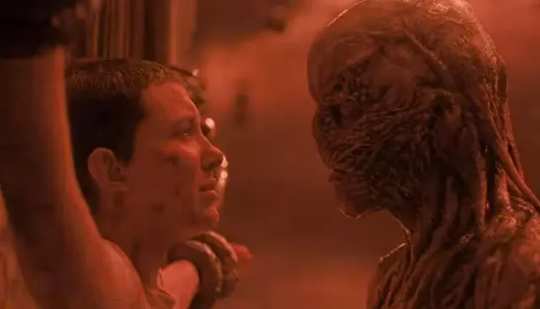
In a way, Henry's story reminds me of Coriolanus Snow's arc in The Ballad of Songbirds and Snakes: Despite the relationship he has with Lucy Gray Baird, it wasn't enough to cancel out his negative personality traits (narcissism, entitlement, etc) and whatever love he may have had for her isn't enough to redeem him, or prevent him from becoming the tyrant we all know and loathe by the events of The Hunger Games.
Another theme present was the exploration of the adult characters and how the personality traits they had as teens continue well into adulthood. It's been speculated before by various groups of people that, internally, there's a certain point where you stop growing mentally and remain the same age, and that definitely seems to be the case here with some characters. The problem is that while these qualities might have been excusable when they were teenagers, they become less appealing as time goes on:
Ted Wheeler, for example, is depicted in the play as a dumb jock who's clueless most of the time. Fast-forward to the 80s, and he's now an apathetic father who still remains clueless. Not only is this not cute anymore, it's frustrating to his wife and those around him.
Karen Wheeler is depicted in her teens as interested in her youth and beauty and dating Ted BECAUSE he's a hot jock. By the time she's an adult, she's still into that (though she does make more of an effort to be emotionally available to her kids unlike Ted) and her desire for youth and a passionate relationship almost leads her to sleeping with Billy despite the inappropriate age difference between the two. 🤮
Jim Hopper is a younger man with a fractured relationship with his abusive father, and a lot of his motivation is rooted in trying to stick it to his dad and prove that he isn't the loser his father thinks he is. It's why he takes an interest in the animal killings around Hawkins and conducts an investigation similar to how police would do it. It's also why he joins the Vietnam War later (as he would later tell Enzo/Dmitri in S4). Even later becoming the Chief of Police on the show likely has its roots in this. Years later, long after his dad is likely dead, he's still trying to prove him wrong.
Lonnie Byers is depicted as a douchebag, even as a teen, who isn't really interested in making something of his life, who's coasting off other people, and really doesn't have any desire to improve himself. Come Season 1, and is it any surprised he's a deadbeat dad who's divorced from Joyce and still making shitty decisions down the line?
Same goes for Al Munson: The play depicts him as an improv actor who's deeply self-centered, who isn't as good as he thinks he is, and is someone who just annoys everyone around him with his antics. Anyone who's read Flight of Icarus knows he doesn't get any better as an adult, and it has completely wrecked his relationship with his brother Wayne and his son Eddie.
And then there's Dustin's father: "Asshole" is the best term I can use to describe him. He's very belittling and not well-liked (even among his peers), and it doesn't surprise me that Mrs. Henderson (who's also shown to be a cat-lover as a teenager) would eventually split with him and raised Dustin on her own.
There are a few positives though: Both Charles and Sue Sinclair come out of the play as decent people, and Sue is shown to be a loyal friend to Joyce, helping Joyce to get her play organized. I can see why they ended up together, and I maintain both Lucas and Erica are lucky to have them as parents.
The overall point is, like with Henry (who also never really grew up, and is now an angry kid trapped in the body of a 30-something adult), there is a theme that change is a process you have to work on. All of these characters (including Henry) have their own flaws they have to work through, and it is a choice about whether you put in the hard work of overcoming those flaws, or you surrender to them and let them dictate your life and stilt your growth. It's always an uphill battle, and it's never easy, but when the alternative is hurting the people around you, I would argue it's worth the effort for their sake.
Final Thoughts:
While there is some leeway between how events in the play can be interpreted, there is one tiny retcon that was hard to ignore: Henry's age. In the show, it's specifically mentioned in the newspaper article that Nancy and Robin look up that Henry was 12 when Virginia and Alice Creel were killed. However, this play retcons his age to being 14 years old. My guess is this was likely done so that Henry would be a freshman, and therefore able to attend Hawkins High School with Joyce, Hopper, Bob, and the other characters. While I don't mind this retcon for story purposes, it still sticks out like a sore thumb, and I wish the Duffer Brothers would take better care with details like that, especially after what happened in S4 with Will's birthday being forgotten.
There is a pamphlet for 10€ that they sell at the Phoenix Theater that gives more information about the play, its cast, and the central ideas behind the story. You can even see it in the picture above with the other memorabilia I collected (next to the t-shirts I bought). If you're going to see the play, I highly recommend purchasing it. It's worth the money.
Overall, this was a well-written play that I'm willing to accept as canon. I hope the events in this play are referenced in S5, and have a role in how the show's story unfolds. I highly recommend getting a ticket for anyone who is a Stranger Things fan! :)
#stranger things#tgh opinions#tgh reviews#stranger things the first shadow#the first shadow#henry creel#vecna#number 1#joyce byers#jim hopper#bob newby#patty newby#martin brenner#virginia creel#victor creel#alice creel#the mind flayer#will byers#el hopper#principal newby#the upside down#stranger things season 5#st5 theories#stranger things 5#st5 spoilers#Youtube#ted wheeler#karen wheeler#al munson#sue sinclair
52 notes
·
View notes
Text
Misfits and Misinformation Perspective Character Introduction: Talia
Name: Natalia Susannah Hawkins
Nickname(s): Talia
Birthday: 14th of March
Age: 17 years old
Height: 155cm / 5’1’’
Dominant Hand: Right
Occupation: Nevermore Student
Species: Vampire
#Made By Me#Perspective Character Introduction#Wednesday OCs#Misfits and Misinformation#Natalia Hawkins#Talia Hawkins
0 notes
Text
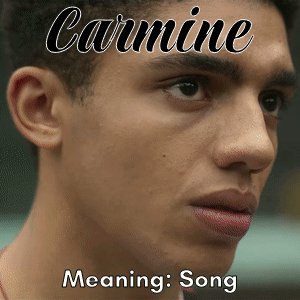
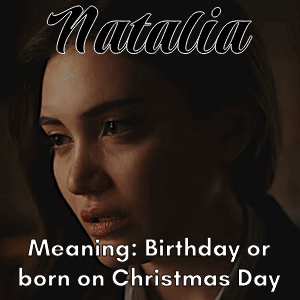
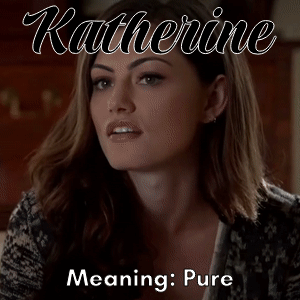
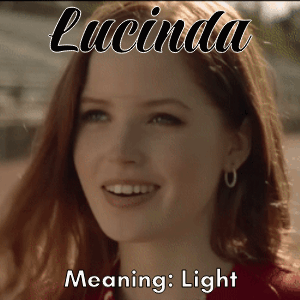
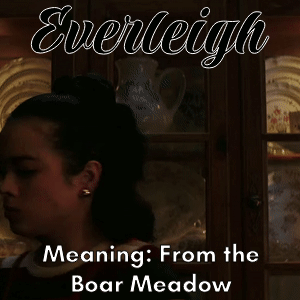
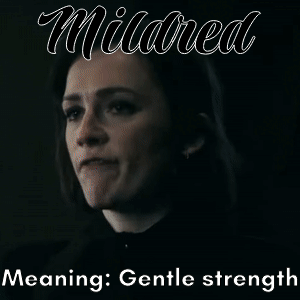
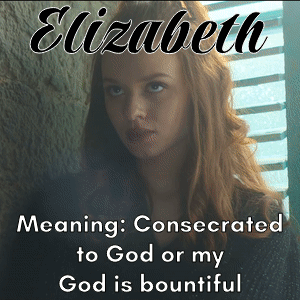
Name Meanings: Multiple Perspective Characters
Inspired by this.
Carmine 'Car' Bishop and Natalia 'Talia' Hawkins from Misfits and Misinformation (Wednesday);
Katherine 'Kate' Bastille from Rising Light [created and written with @fiercefray] (Constantine);
Lucinda 'Luce' Turner from The Piccola Rossa Series (Peaky Blinders);
Everleigh Howard from Trust Your Instincts (Dexter: New Blood);
Mildred 'Millie' Blake from Truth Serum (Slow Horses);
Elizabeth 'Eliza' Moriarty from Unexpected Partners (Alex Rider).
#ocappreciation#Made By Me#Name Meanings#Misfits and Misinformation#Rising Light#The Piccola Rossa Series#Trust Your Instincts#Truth Serum#Unexpected Partners#Wednesday OCs#Constantine OCs#Peaky Blinders OCs#Dexter: New Blood OCs#Slow Horses OCs#Alex Rider OCs#Collaborative OCs#Carmine Bishop#Natalia Hawkins#Katherine Bastille#Lucinda Turner#Everleigh Howard#Mildred Blake#Elizabeth Moriarty#Car Bishop#Talia Hawkins#Kate Bastille#Luce Turner#Millie Blake#Eliza Moriarty
1 note
·
View note
Text

For this year’s Tiefling Secret Satan, I drew Maeday’s character Natalia Drake Hawkins!
I had a lot of fun drawing them!
Maeday's Links:
https://www.instagram.com/dml.arts/
https://artfight.net/~Dml-arts
https://refsheet.net/Maeday0648
#artwork#character art#artists on tumblr#art#digital art#dnd art#fantasy art#my art#illustration#dnd#tieflingsecretsatan2024#tss2024#dungeons and dragons#pretty tiefling#fantasy artist#fantasy#tiefling#pirates#pirate#fantasy character#dnd character#characterart#character illustration#halfbody
39 notes
·
View notes
Text
sometimes i still think about the fact that nancy is one of the most powerful, plot-critical characters in stranger things, and how she has led her own arc every single season--from driving the search for barb to taking down the lab to figuring out the flayed to being a fucking general by the end of season 4. and about how she was taking care of the kids during the last half of s3 and how she was the leader of the hawkins group in s4. like, i really cannot emphasize that enough. once the main character with superpowers and the actual war veteran chief of police are out of town, nancy is the unquestionable leader. the person everyone turns to without thinking twice. i’m serious. nancy is a teenage girl who has her every move questioned and doubted and still the only people more powerful than her in the show are a girl with superpowers and a war vet.
and when danger--physical danger--shows up, she doesn’t fucking hesitate. she’s diving straight into the upside down. she’s leading the older group to safety again. she’s shoving aside the 5 different traumatic experiences she just witnessed to put together a multi-step military operation and she’s taking point to go shove a shotgun in vecna’s face. and yeah, they end up not being alone when they face vecna because el is there, but nancy doesn’t know that. she’s fully intending on going to kill an adult man who has control over an entire dimension and has been murdering people with his mind, even though she has no backup, no superpowered el, no hopper and his government contacts, nothing.
and yet.
AND YET
the vast majority of natalia dyer’s press for s4 was about a love triangle. and i get it, a lot of interviewers can’t get away with not asking those questions, but you know what else you could ask about? nancy’s growth over the last 4 seasons. how it felt being the leader of the hawkins gang. how she thinks nancy feels after losing another friend. what was running through her head when vecna had her. what her thoughts are regarding nancy’s plan, or what’s going through her head during that final scene when she’s *checks notes* standing behind the show’s protagonist and looking at The Plot as it rises from the ground.
or, i don’t know, ask her what it’s like being the person handling guns on set. what those upside down night shoots were like. what her thoughts are on nancy’s choice of college! what she thinks about the perm! for fuck’s sake there are only a thousand different questions that would’ve been far more interesting or at least personal to her character. but no. every interview boils down to team steve or team jonathan, as if a tired, already resolved love triangle is anywhere near as interesting as literally any other part of her character
#we're raging tonight lads natalia dyer deserved BETTER#can you imagine watching stranger things season 4 and getting the chance to interview one of the MOST CRITICAL CHARACTERS#and then asking her about this tertiary cliche plot line that you know she can't answer anyway#can you imagine#nancy wheeler#stranger things#natalia dyer#she deserves betterrrrrr#tbh i fully believe we got as much ronance content as we did just bc it was more interesting to talk about than jonathan vs steve#and i can't blame her for that!#i'd be talking about it too even if i didn't ship it#bc at least then you don't have to talk about which of her mediocre relationships she's gonna revive#give nancy wheeler (and natalia dyer) a break ffs#at this point i think we should get single nancy just out of spite
390 notes
·
View notes
Note
I've read every single book I can find on the Romanovs but would like some help finding more books. I just found your blog and I love it!
Hello, thanks for your question. Here are some of my favourite more obscure books for those of you who have read all you can find and raided the libraries!
The Romanovs Under House Arrest: From the 1917 Diary of a Palace Priest edited by Marilyn Pfeifer Swezey
A short, but interesting and beautifully illustrated book that translated the diaries of Archpriest Afanasy Belyaev into English. It gives an insightful look into the last few months and weeks the Romanovs spent at the Alexander Palace and their faith.
LUNCH ON THE BALCONY: Recipes from the table of Russia’s last imperial family by Helen Azar
Can you tell I'm hungry right now? This book has some nice information about the Romanov's food, showing menus they used, letters and diary entries referencing food, and recipes used in the imperial kitchen that you can try at home.
Last Years of the Court at Tsarskoe Selo Volumes I and II by Count Alexander Spiridovich, edited and translated by Katherine Alexandra Hines
A lengthy look at the Count's role as a member of court and security duties. These volumes have some interesting passages about OTMA, though they focus more on the political activities of the Romanovs.
The Forgotten Tutor: John Epps and the Romanovs by John Epps and Dr. Gabriella Land
John Epps, an English tutor to the imperial children, remains a somewhat elusive figure in literature about the Romanovs, with very little information available about him in comparison to fellow tutors Gilliard and Gibbes. I have personally found it very difficult trying to track down this book as it was published a decade ago and seems to have only had one limited print run. The extracts that I have read have been very interesting. If you're interested in OTMA's childhood and education, this book is perfect for you - but good luck finding it! :(
A Few Years Before the Catastrophe: The memoirs of Sofia Ivanovna Tyutcheva edited and translated by George Hawkins
A very short but interesting read directly from the recollections of Sofia Ivanovna Tyutcheva who looked after the children. It gives a short but enlightening look at how things were run in the nursery.
When Miss Emmie Was in Russia: English Governesses Before, During and After the October Revolution by Harvey Pitcher
This book has a more sweeping view of Russian nannies in general, but has some nice tidbits of information about OTMA's nannies, such as Margaret Eagar (though she was Irish, not English!). If you enjoyed Charlotte Zeepvat's book on royal nannies that has some great info and sources on OTMA, this is a good follow up read.
Step-daughter of Imperial Russia by Natalia Mamontova Majolier
Recollections from Natalia "Tata", Grand Duke Mikhail Alexandrovich's beloved stepdaughter. Lots of information about growing up with Mikhail and experiencing the Revolution.
Russia, My Native Land: A U.S. Engineer Reminisces and Looks at the Present by Gregory Tschebotarioff (Chebotaryov)
Written by the son of Grand Duchess Olga and Tatiana Nikolaevna's fellow nurse and friend, Valentina Ivanovna Chebotaryova, this memoir gives a greater picture of Valentina's life by including extracts of her diary. It also has details about Gregory's experience serving in WWI.
Anastasia's Sisters: Their Diaries, Letters and Memories edited by Raegan Baker and translated by Catherine Hamel
A short book with extracts from Grand Duchesses Olga, Tatiana, and Maria's writings. I always find it interesting to read different translations of the same sources and find various changes made my each translator. As always, translations rely on the translator's discretion and interpretations.
The Many Deaths of Tsar Nicholas II by Wendy Slater
This book is an academic, somewhat cold and clinical, look at the deaths of the Romanov family. The compilation of scientific analysis (though this was published in 2007, so not accurate to recent discoveries) during the middle sections is the best part of this book, as the fictionalised narrative at the start doesn't appeal to me and the analysis during the latter stages veers off focus.
The Jewel Album of Tsar Nicholas II and a Collection of Private Photographs of the Russian Imperial Family by Alexander von Solodkoff
A lovely illustrated book - if you can afford it!! This regularly sells for over $100, but is very detailed and beautiful, including high-quality full-colour copies of Nicholas' "Jewel Album" with his annotations and marvellous drawings.
My Father by Maria Rasputina
For fans of the infamous Rasputin, this glimpse into how daughter Maria perceived her father is an interesting read. Rasputin is one of the most contentious and well-researched figures in this area of history, and reading his daughter's experiences and how she viewed his healing of Tsarevich Alexei is a unique viewpoint.
The Emperor Nicholas II: As I Knew Him by John Hanbury-Williams
Major-General Sir John Hanbury-Williams provides an intimate look at life during WWI in Russia, from the perspective of his role as an English representative at Stavka. Some interesting observations about Nicholas and Alexei.
Lost Tales: Stories for the Tsar's Children by Gleb Botkin
Gleb Botkin, only seventeen, composed and illustrated this series of tales (collected here as one book) for the imperial children during their imprisonment at Tobolsk. A lovely look into Gleb's artistic skills, and the interesting parallels between his animal characters and the revolution. Not necessarily a history book, but an interesting insight into life at Tobolsk.
In case I missed any, if you search #q and #answered on my blog it will come up with a list of previous questions, a lot of which relate to reading recommendations, so you might find some more suggestions there.
For information of a compilation of primary source writings written by the Romanovs that have been translated into English, see here
Happy reading!
23 notes
·
View notes